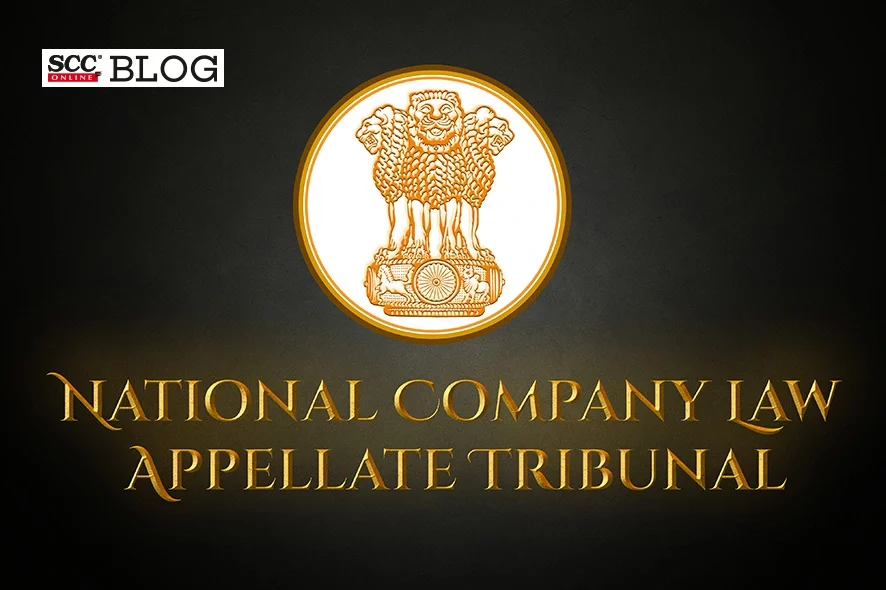National Company Law Appellate Tribunal, New Delhi: A Division bench comprising of Ashok Bhushan, J., and Barun Mitra* (Technical Member) reiterated that an Operational Creditor can only seek to initiate Corporate Insolvency Resolution Process (CIRP) against a Corporate Debtor under S. 9 of the IBC, if there exist no real dispute between the parties.
Factual Matrix
The Corporate Debtor-appellant and the Operational Creditor-respondent entered a contract for the delivery of materials for their project. The project was finished on 09-06-2012, and a purchase order for Rs. 7.86 crore was issued on 10.08.2011. The Operational Creditor failed to meet the deadlines for both the supply and delivery of the project despite multiple extensions. The Corporate debtor was forced to ask BHEL to finish the project and deliver the supplies against the risk and expense of the corporate debtor due to the operational creditor’s inefficiency. On 06-07-2019 a message regarding the risks and cost was delivered to the Operational Creditor. The Adjudicating Authority admitted the application filed by the Operational Creditor under S. 9 of Insolvency and Bankruptcy Code, 2016 (IBC) and initiated CIRP against the Corporate Debtor. The Corporate Debtor preferred the present appeal against the impugned order passed by the Adjudicating Authority, challenging the same before the NCLAT.
Appellant’s Contentions
While disputing the dues claims made by the operational creditor, the appellant contended that the letter had made it evident that, after all modifications, there was nothing owed to the operational creditor and in accordance with the General Conditions of Contract (GCC), the Corporate Debtor was qualified to receive the liquidated damages (LD). It was further highlighted that this letter, which disputed the operating debt, was sent before the demand notice under S. 8 of the IBC. Additionally, it was alleged that the Corporate Debtor had outlined the reasons why it was not responsible for paying the unpaid debts that the Operational Creditor claimed were owed in its reply to S. 8 notice. It was contended that there was a pre-existing disagreement between the parties about the delivery of supplies and the Operational Creditor’s inability to complete the work order on time. While placing reliance on S.S. Engineers v. Hindustan Petroleum Corpn. Ltd., 2022 SCC OnLine SC 1385, it was contended that the IBC is not a venue for debt recovery.
Respondent’s Contentions
The respondent contended that the Corporate Debtor’s failure to fulfil significant reciprocal promises and responsibilities, particularly the prompt release of payments for supplies delivered and services completed, was the cause of the delay of the completion of the contract. It was further contended that the defence of risk and cost action and LD was an afterthought as the communication between the parties contained no reference of the outstanding dues being subject to adjustment following the determination of the risk and cost amount or following the deduction of LD. The respondent also claimed that the Corporate Debtor failed to provide any documentation proving that it adhered to the contract’s risk and cost action mechanism.
NCLAT’s Observation
The NCLAT observed that even if a reply notice is not provided within ten days, the Corporate Debtor is still permitted to raise the issue of prior disputes by presenting pertinent evidence to the adjudicating authority.
The NCLAT noted that the Corporate Debtor explicitly acknowledged their obligation to pay off any outstanding debt that was greater than the threshold limit but didn’t do the same hence there is clear evidence of debt and default and a strong case for admission of application under S. 9 is made out.
On the bases of lengthy correspondence between the parties in the present case, the NCLAT observed that the disputes were raised much before the issue of the Demand Notice and therefore, S. 9 proceeding under IBC cannot be initiated at the instance of the Operational Creditor. The NCLAT while applying the test laid down by the Supreme Court in S.S. Engineers (Supra) further noted that the Adjudicating Authority has failed to correctly appreciate the ratio in the case as CIRP can be initiated only if there is a default in the payment of an undisputed debt.
“Where operational creditor seeks to initiate insolvency process against a Corporate Debtor, it can only be done in clear cases where no real dispute exists between the two parties which is, however, not so borne out given the facts of the present case.”
NCLAT’s Verdict
While reiterating that an insolvency process can only be initiated in clear cases where no real dispute exists between the two parties, the NCLAT allowed the present appeal and set aside the impugned order initiating CIRP of the Corporate Debtor and all other orders issued pursuant to the impugned order.
[Om Prakash v. Wipro Enterprises (P) Ltd., 2023 SCC OnLine NCLAT 224, order dated 04-05-2023]
*Judgment by Barun Mitra (Technical Member)
Advocates who appeared in this case :
Mr. Ramji Srinivasan, Sr. Advocate with Ms. Shruti Pandey, Mr. Vaibhav Dabas, Mr. Ashim, Counsel for the Appellant;
Ms. Anjali Sharma and Mr. Deepak Bashta, Counsel for the Respondent No. 1;
Mr. Vishal Ganda, Mr. Rahul Narula, Counsel for the Respondent No. 2.







